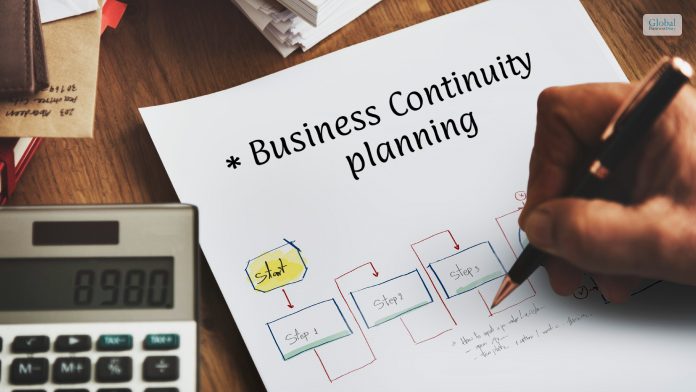6 Common Mistakes To Avoid When Hiring A Workplace Cleaning Company

A fresh and well-maintained workplace can improve the mood and productivity of your employees.
However, it’s not that easy to maintain a clean work environment.
When the day is hectic, it’s impossible not to make a mess.
As a business or property owner, the best thing to do is hire a professional cleaning company. Hiring a professional cleaning company is as important as running the 10 panel drug test for new recruitments.
Why Hire A Cleaning Company?
You could be contemplating whether hiring a professional office cleaning company is worth it. After all, you also have the option to hire employees who can handle cleaning duties instead.
Plus, some businesses utilize a chore chart to delegate cleaning duties to their employees on a regular basis. So, what’s the point of hiring a professional cleaning service?
One significant benefit of hiring a workplace cleaning service is that you don’t have to screen and hire your own cleaning staff. This saves you a lot of time, effort, and resources. Additionally, you don’t even have to provide training since the cleaning company will take care of that.
With a cleaning company, you’re assured that the cleaners you get are skilled, professional, and well-equipped to handle any kind of cleaning or disinfecting job. Moreover, you don’t have to worry about buying vacuums, mops, and any other cleaning equipment since professional cleaning companies can provide them.

Common Mistakes To Avoid When Hiring A Cleaning Company
Hiring a cleaning service is advantageous for both employees and the company. However, because of time constraints, most businesses make mistakes in choosing and hiring a cleaning company. The following are the most common blunders companies make when choosing a cleaning service and how to avoid them:
1. Failing To Check Licenses And Certificates
There are plenty of fraudulent companies out there. Many businesses end up hiring cleaning companies that don’t have the right paperwork, licenses, and certifications. Because of this, the cleaning staff and service they get are unsatisfactory.
What Should You Do: Double-check the company’s certificates and licenses. Inquire about their insurance, experience, expertise, certification, and licensing. In the end, hiring background cleared cleaning services will ensure you only get trained and well-equipped cleaning staff for your workplace.
Aside from getting superior cleaning services, you don’t have to worry about possible theft and damages caused by ill-intentioned cleaners.
2. Neglecting To Read And Fully Understand The Service Contract
An agreement cannot be deemed void simply because one party did not read or comprehend it. As a business owner, you know how important it is to have a service agreement with another company. Both sides need to know what their responsibilities are and what they can expect. If you don’t know what’s in the contract before signing it, you’re at a disadvantage, specifically if a problem arises while the agreement is in effect.
What You Should Do: Make sure to read the agreement and understand everything in it. Look for parts of the contract that talk about the cleaning service’s scope as well as the company’s involvement when accidents, loss, and other kinds of damage occur. Be sure that the payment terms, completion date, and other specifics of the cleaning service are all laid out in the contract. Lastly, don’t hesitate to express and share your concerns if some terms and provisions are unclear. Communication is essential in every business relationship.
3. Hiring Low-Priced Cleaning Services
As a business owner, you’re used to looking for ways to make more money and cut costs. But when it comes to finding the right cleaning company, cheap doesn’t always guarantee better services. Not all low-cost cleaning services are guaranteed to do a good job. So, instead of saving money, you wind up shelling out extra cash to hire another cleaning company to redo the job until you’re pleased with the results.
What You Should Do: Consider the cleaning service your company needs, and plan accordingly. Then, get estimates from several cleaning companies so you can evaluate their services and prices. From that, you can choose the best cleaning service that suits your business needs and budget.

As a business owner, you may not have sufficient time to keep your office clean and tidy
4. Disregarding A Cleaning Service’s Specialization
Not every cleaning company is the same. Some can offer highly specialized cleaning services while some cannot. Some cleaning services focus on specific industries, such as hotels, factories, and restaurants.
What You Should Do: Take the time to conduct research. The time and effort you put into research will pay off. You can easily find a cleaning service’s specializations by visiting their company website. This is important, especially if you’re in the food and retail industry. Restaurants, groceries, and shops have to be cleaned and disinfected more thoroughly than a regular office establishment because the health and safety of customers are a major concern.
5. Skipping Reference Checks
References can attest to a cleaning firm’s dependability, competence, and expertise. Regardless of what kind of services your company needs, asking for references is a great way to learn more about the services and standards of a cleaning company. This is also a fantastic way to determine whether and how problems were resolved if a past client had any problems with the firm. This information might reveal whether the organization is dependable and professional, especially under difficult circumstances.
What You Should Do: Conduct a reference check by calling the cleaning company’s previous clients to learn about their cleaning skills and level of service. Check the company’s website or social media accounts for client feedback and comments. If you can personally locate some of their clients, it is best to reach out and ask them for their thoughts about the company.
6. Rushing Decisions
You might be in a rush to find a cleaning service so you can get back to running your business. However, picking the best cleaning service isn’t something that should be rushed. It’s important to carefully select a professional and reliable cleaning service for your company as they’ll have access to your premises, valuable technologies, and office equipment.
What You Should Do: To avoid making hasty decisions, you don’t have to hire a cleaning company right away if it’s not that urgent. If your workplace just needs general cleaning and maintenance, you may enlist some of your employees and give them additional compensation for agreeing to perform some cleaning duties. But do remember that this should be a temporary arrangement. Eventually, you need to hire a professional cleaning company for your workplace since most employees won’t like performing duties that are outside of their job description.

Final Thoughts
As a business owner, you may not have sufficient time to keep your office clean and tidy. After all, cleaning the entire workplace is a difficult undertaking that demands both expertise and consistency. But since your employees deserve to work in a clean and sanitary workplace, the best solution is to hire a professional cleaning company that provides trained and professional staff, along with reliable cleaning equipment.
Additionals:













